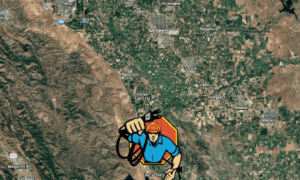New York City aims to save energy with Local Law 87. This law requires buildings to track how much power they use. Owners must submit plans and reports showing how their structures can use less electricity and natural gas. Deadlines and rules keep changing. Businesses face fines if they do not obey this effort to green the city. However, to comply with the rule you must understand Local Law 87 NYC requirements. Read along to know about the steps to go through, due dates and fines of LL 87.
What is Local Law 87 (LL87)?
New York City passed an important law in 2009 to make big buildings use energy better. It is called Local Law 87. The law requires building owners to check how energy-efficient their buildings are at least once every 10 years. They must do energy audits and retro-commissioning studies. Building owners also need to submit Energy-Efficiency Reports (EERs)
Local Law 87 NYC, wants buildings to check how much energy they use and find ways to use less. This will cut costs and help the environment. Building owners must check their heating, cooling, lights, and other machines to see how they can work better. The goal is to lower energy bills and pollution.
New York Local Law 87 Requirements
Buildings bigger than 50,000 square feet must get energy checkups and tuneups every ten years. This is because of a law called LL87. The checkups look at how well the building’s lights, heat, air conditioning, and other systems use energy. Experts check to see if changes can help use less energy and make everything work better. They want buildings to use the least amount of energy possible.
What are the steps to go through Local Law 87 NYC?
LL87 compliance in New York City has specific rules for building owners and managers. It’s important to understand these rules smoothly and successfully. The key parts of Local Law 87 compliance include:
Identifying the covered buildings-
Find out if your building is big enough to follow LL87. It needs to be 50,000 square feet or more. Also check when your building must do what the law says. There is a ten-year time period to follow the rules.
Find Local Law 87 compliance solutions-
Choose a well-known Local Law 87 compliance consulting solution company that helps make buildings green, like The Cotocon Group. They are experts in doing energy check-ups and making sure machines work well. Their knowledge as a Local Law 87 compliance consulting company means they can find the right fixes and make clear reports.
Initiate energy audits-
Begin the energy check by looking at how much energy is used, how the building works, and what people do inside. This helps us see what uses extra energy and where we can save money. Prepare a Local Law 87 energy efficiency report for better analysis.
Retro-commissioning study-
Do a retro-commissioning study to make the building’s current systems work better and use less energy. Follow the study’s suggestions to improve the systems and meet the rules in LL87.
Put together the Energy-Efficiency Report-
Gather all the results and suggestions into one big Energy-Efficiency Report. The report will show the results from checking the building, things found when looking at how the building systems work, and plans for saving energy.
Submit to authorities-
Send the Energy Savings Report to the people in charge by the deadline. It’s really important to follow the rules in Local Law 87 NYC. Doing this means we won’t get in trouble and can keep working.
Local Law 87 New York City, Compliance Due Dates
Local Law 87 New York City compliance does not follow the same rules for every building. Instead, it works on a staggered schedule based on the last number of the tax block number connected to a property. Due dates happen every ten years. Property owners need to know their exact compliance deadline to avoid fees. Staying up to date about these due dates is important for planning and finishing the energy checkup and report within the required time period.
Are there any penalties for non-compliance?
Building owners in New York City who don’t follow LL87 can get in big trouble. Here are what can happen if the law is not followed:
- Fines – Building owners who fail to comply with LL87 can be fined up to $3,000 per violation.
- Violation notices – The buildings department in New York City can give notices to building owners who do not follow Local Law 87. These notices can lead to more fines and punishment.
- Building Performance Grade – The New York City law gives buildings energy scores to show how good they are at saving power. The law is called the New York City Energy Conservation Code. It gives buildings a “Building Performance Grade” or BPG. This grade lets people know how efficient the building is. If a building does not follow the NYC Local Law 87, it may get a lower BPG score. A lower score can hurt what people and buyers think about the building and how easy it is to sell.
- Losing financial incentive – Building owners who do not follow LL87 may lose chances for financial help, like tax savings and refunds, for making energy-saving changes.
- Legal action – Sometimes, New York City can go to court against building owners who do not follow LL87. This can lead to more fines, punishments, and legal costs.
How can The Cotocon Group- Local Law 87 compliance consulting solution help?
Hiring The Cotocon Group can help you comply with Local Law 87 NYC hassle-free. Here is how we can help you in checking all the requirements for NYC Local Law 87-
Access to Expert Professionals-
In accordance with the latest amendments to Local Law 87, signed Energy Efficiency Reports (EERs) require validation by professional engineers or registered architects. Choosing The Cotocon Group grants building owners access to expert professionals who ensure the accuracy of compliance results.
Dynamic Approach to Energy Auditing-
The group’s experienced Local Law 87 experts adopt a dynamic approach to energy auditing and retro-commissioning. They examine all energy consumption systems in a building, recognizing their interconnected nature. This ensures that adjustments are not made in isolation, considering the potential ripple effects on the entire system.
Post-Audit Services for Comprehensive Compliance-
Going beyond Local Law 87 NYC, The Cotocon Group’s experts also handle the interconnected requirements of Local Law 97. By providing post-energy auditing services, they ensure building owners can conveniently sign off on the prescriptive list of Local Law 97, offering a holistic compliance solution.
Energy Checkups and Building Tune-Ups-
The group does complete energy checkups and careful building tune-ups. These full energy checkups and tune-ups help them really understand how much energy a building uses and how well it runs. This helps them make sure the building saves energy in the best way.
Custom Strategies for Each Client-
The Cotocon Group knows that every building uses energy in different ways. Their experts make special plans to help buildings save energy and meet Local Law 87 NYC rules. The plans help each building in the best way without everyone getting the same answers.
Also Read: Local Law 97 all about
Conclusion
Following Local Law 87 rules in New York City needs knowing exactly what the Department of Buildings says. Energy checks, due dates, and suggested changes each play an important part. Buildings must help the city’s overall green plans. Owners can meet what the law says and maybe get help from experts too. They can help make buildings use less energy and be better for the environment.



































